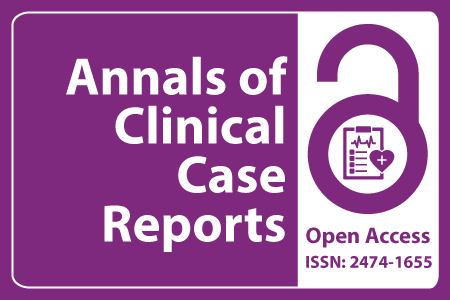
Journal Basic Info
- Impact Factor: 1.809**
- H-Index: 6
- ISSN: 2474-1655
- DOI: 10.25107/2474-1655
Major Scope
- Trauma
- Chronic Disease
- ENT
- Family Medicine and Public Health
- Orthopedic Surgery
- Asthma
- Hepatology
- Cardiology
Abstract
Citation: Ann Clin Case Rep. 2023;8(1):2493.DOI: 10.25107/2474-1655.2493
Infections in Patients with Addison's Disease: Considerations in Primary Care
Sharan K1 and Adnan S1,2,3*
1Imperial College School of Medicine, London, UK
2Sheepcot Medical Centre, Watford, UK
3St. George’s University, Grenada
*Correspondance to: Adnan Saad
PDF Full Text Case Report | Open Access
Abstract:
Patients with Addison’s disease may present to primary care with infection; this can be a highrisk situation due to the risk of an Addisonian crisis. A careful history and examination searching for a potential infective source and assessing for ‘red flags’ such as fevers, abdominal pain, and vomiting, are crucial. The characteristic electrolyte changes in Addisonian crisis are hyponatremia and hyperkalemia. Hypercalcemia is also often present, as is eosinophilia. Emergency management if crisis is suspected includes a rapid ABCDE assessment, intramuscular steroid injection, and transfer to the emergency department. Less urgent management would likely include guideline-directed antibiotics and an increase in steroid dose (‘sick day rules’). Follow-up should involve discussion of wellbeing, a reminder to increase steroid dosage to support the stress response, a reminder on emergency injections, and a medication review. Endocrine referral should be considered, and follow-up blood tests may help confirm resolution of infection. Psychosocial support is also important, as are preventive measures such as influenza vaccination.
Keywords:
Cite the Article:
Kapadia S, Saad A. Infections in Patients with Addison's Disease: Considerations in Primary Care. Ann Clin Case Rep. 2023; 8: 2493..













